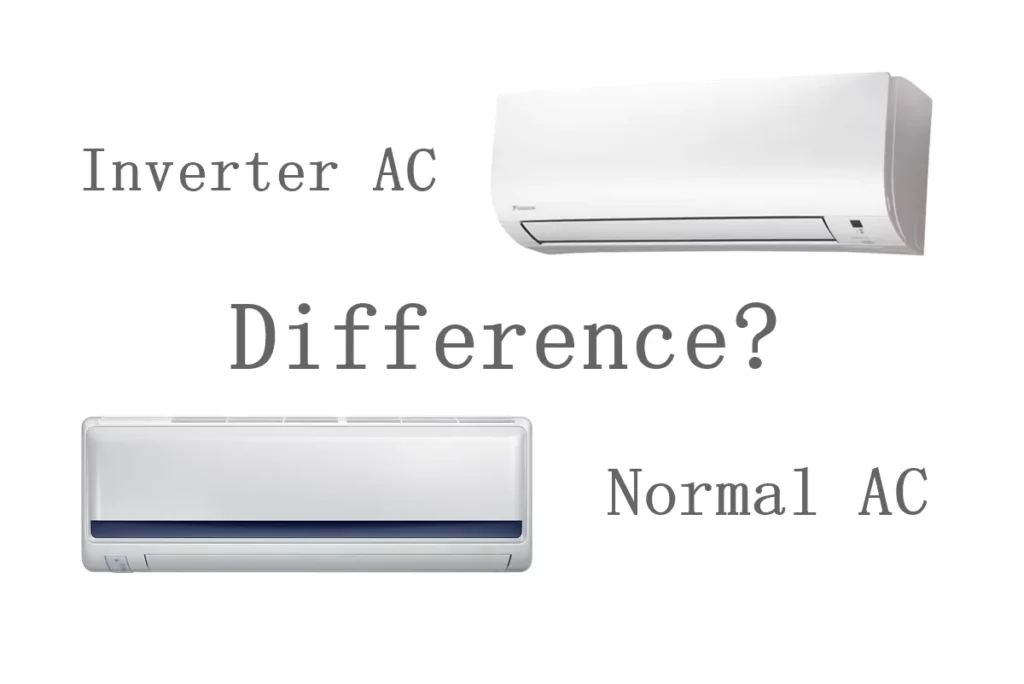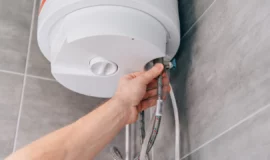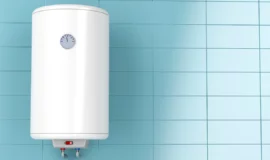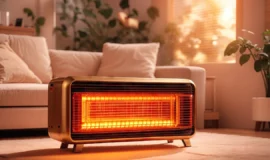
Extreme weather conditions in the country have set a high demand for air conditioners but the inflation nightmares hold us back. Air conditioners are expensive to begin with, and the hefty amount of electricity bills is a cherry on top. However, the efficient electricity consumption of inverter AC can rid you of this problem. Hence, switching to inverter ACs can prove to be a long term cost-effective solution.
Although the initial investment for getting the best inverter ACs in Pakistan may be a little high, they can relieve you of the monthly pocket stress due to their efficient power consumption.
Inverter ACs vs. Non-Inverter ACs
Most people do not recognize the difference an inverter air conditioner makes as compared to a regular air conditioner in terms of power consumption and electricity billing. If you want to understand how inverter air conditioners help in power saving, you can take a look at What is Inverter AC and How it Works?

To put things into perspective, let us explore the details of how much electricity an inverter AC consumes on average.
Electricity Consumption of 1 Ton Inverter AC
1 ton AC watt consumption can vary as per the wattage vary as per model. The tonnage capacity of an AC indicates how quickly it changes the current temperature of the room to the temperature you desire. If I talk about a 1-ton non-inverter AC, it would easily consume 1500 Watts of power. Whereas, the power consumption of a 1 ton inverter air conditioner can begin from as low as 300 watts on average. It can work perfectly for a small room. However, if you have a bigger room, you will certainly require a bigger inverter AC.
I calculated the average cost of 1 ton inverter AC’s electricity bill for you. You can check it out below:
| Cooling Capacity | 1 Ton AC Watt (Min) | 1 Ton AC Watt (Max) | Avg. Daily Usage (12 hrs.) | Avg. Electricity Cost Per Month |
| 1 Ton | 300W | 1450W | 10.8 kWh | Rs. 10,000 to Rs. 13,000 |
1 Ton Inverter AC Power Consumption Per Hour
| Cooling Capacity | Min Power Consumption | Max Power Consumption | Avg. Hourly Usage | Avg. Electricity Cost Per Hour |
| 1 Ton | 300W | 1450W | 0.9 kWh | Rs. 29 to Rs. 37 |
Electricity Consumption of 1.5 Ton Inverter AC
Secondly, the average power consumption of a 1.5 ton inverter AC lies between 450W and 2600W. It is the most commonly used among masses at home as it caters to comparatively larger spaces than a 1 ton AC. Furthermore, it provides a cozy sleeping environment for a bedroom overnight. Also, it can effectively cool or heat two medium-sized rooms.
To further convenience you, I listed the important information in the table below:
| Cooling Capacity | 1.5 Ton AC Watt (Min) | 1.5 Ton AC Watt (Max) | Avg. Daily Usage (12 hrs.) | Avg. Electricity Cost Per Month |
| 1.5 Ton | 400W | 2500W | 15.3 kWh | Rs. 17,000 to Rs. 20,000 |
1.5 Ton Inverter AC Power Consumption Per Hour
| Cooling Capacity | Min Power Consumption | Max Power Consumption | Avg. Hourly Usage | Avg. Electricity Cost Per Hour |
| 1.5 Ton | 400W | 2500W | 1.3 kWh | Rs. 47 to Rs. 55 |
Electricity Consumption of 2 Ton Inverter AC
Lastly, the average daily usage of a 2 ton inverter AC is 36kWH when used for around 12 hours a day. Additionally, ranging between 820W – 2670W power usage on average, this inverter AC can easily cost you around Rs.50,000 monthly. Moreover, with an average capacity of 25,000 BTU, this kind of AC can work for large spaces in your house but is a lot more costly. The cost of a 2 ton AC may be too high for a daily user who merely seeks comfort rather than luxury.
Take a look at the table below:
| Cooling Capacity | 2 Ton AC Watt (Min) | 2 Ton AC Watt (Max) | Avg. Daily Usage (12 hrs.) | Avg. Electricity Cost Per Month |
| 2 Ton | 600W | 2700W | 21 kWh | Rs. 26,000 to Rs. 28,000 |
2 Ton Inverter AC Power Consumption Per Hour
| Cooling Capacity | Min Power Consumption | Max Power Consumption | Avg. Hourly Usage | Avg. Electricity Cost Per Hour |
| 2 Ton | 600W | 2700W | 1.8 kWh | Rs. 72 to Rs. 79 |
Disclaimer: The rate of units may vary according to the slabs of electricity. All the aforementioned electricity cost estimations are only for inverter ACs, using other electronic items will increase overall electricity usage, resulting in an increased bill and a higher slab.

Factors Affecting Inverter AC Electricity Consumption
The electricity usage of an inverter air conditioner may vary as it is dependent upon several factors.
Depending on the following, you can determine how much power your inverter AC unit is going to consume.
- The cooling capacity (BTU or tonnage)
- Company and model of the AC
- Size of the room and insulation
- Climate
- Thermostat Setting
- Usage patterns
- Running the AC during peak hours
- AC efficiency ratings
- Regular maintenance
Hence based on these factors, the aforementioned average electricity consumption of inverter AC’s cost may vary for every user. These are some of the important things to consider when buying an inverter AC in Pakistan.
Solar Hybrid AC in Pakistan
Additionally, if you are looking for even more cost-effective solutions, you can consider buying a solar hybrid AC. The newly introduced technology is quite expensive but ensures reduced monthly bills. Hence, promising long-term efficiency and comfort.
Final Takeaway
In conclusion, the electricity inverter ACs consume is different for each capacity and dependent on multiple factors. Undoubtedly, an inverter AC can significantly contribute to energy and cost savings. You just need to know which inverter AC suits your needs and pocket the best and proceed with the buying. I hope this article was helpful. Stay tuned with OLX for more informational updates.
For more information related to inverter ACs, you may also like:








Leave a Reply